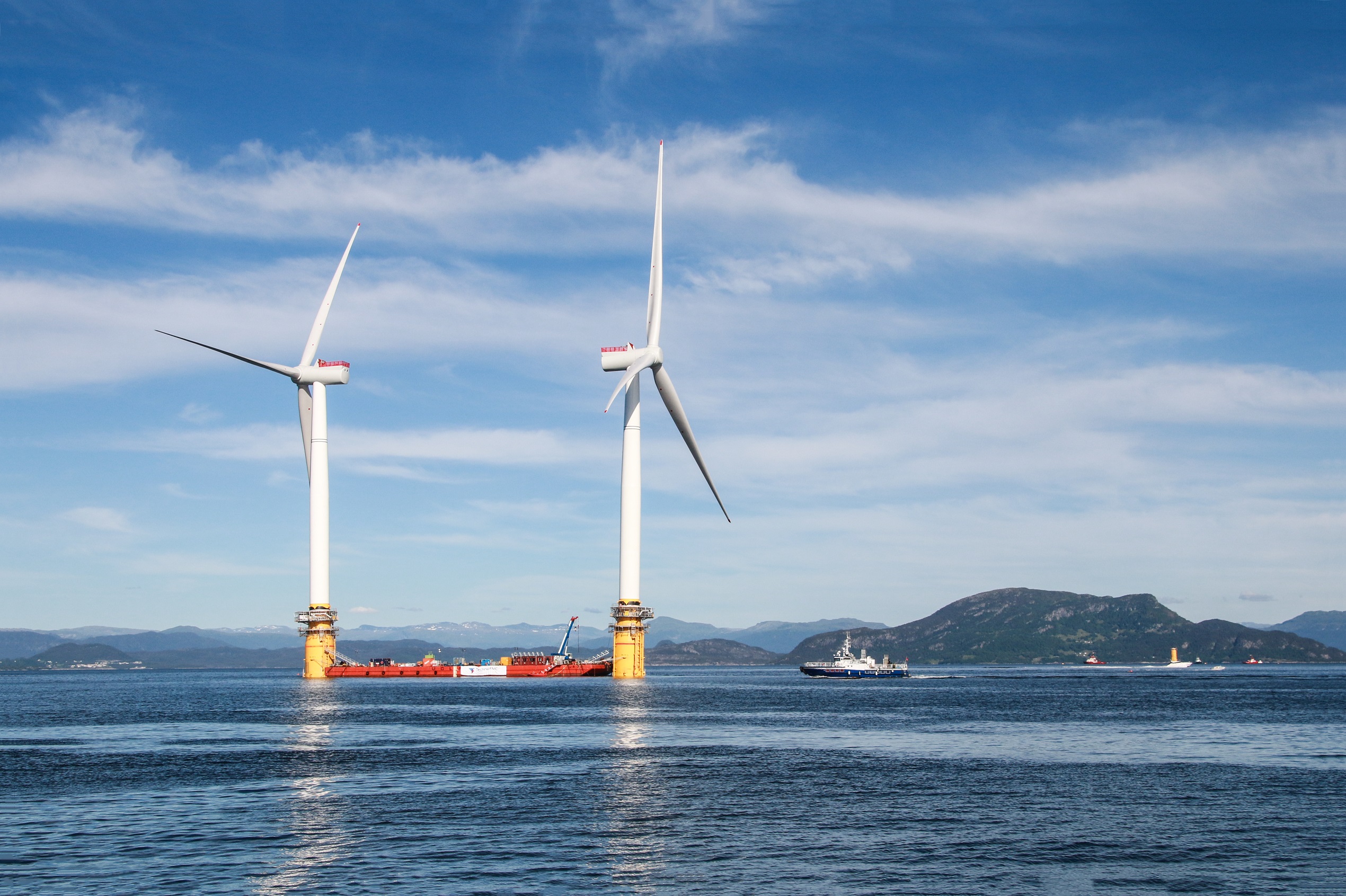The Energy Transition | DESNZ announces reforms to the CfD process for upcoming UK allocation round
Published on 12th May 2025
Welcome to our top picks of the latest energy regulatory and market developments in the UK's transition to net zero

This week we look at the DESNZ reforms to the Contracts for Difference (CfD) process for Allocation Round (AR7), the Capacity Market extension of the unabated gas reserve to ensure security of supply, DESNZ and Ofgem seek industry feedback on energy code reforms and more.
DESNZ announces reforms to the CfD process for upcoming AR7
The Department for Energy Security and Net Zero (DESNZ) published its responses on 6 May to the consultation on potential changes to the Contracts For Difference (CfD) scheme to support the delivery of its Clean Power 2030 plan (CP30).
DESNZ published its consultation on CfD reforms in February and has confirmed the proposals to be introduced to the CfD process, which will come into effect in the upcoming AR7.
It has proposed amending the budget publication process, allowing the the secretary of state to see more auction information ahead of budget setting; and amendments to the Clean Industry Bonus (CIB) regulations.
DESNZ will now bring forward the secondary legislation required to implement the policy changes. Its responses to the other reforms proposed in the consultation will follow in a separate document to be published in due course.
Budget publication
As initially proposed, DESNZ intends to allow a contract budget notice (CBN) to be published later in the allocation round process (previously 10 working days before the application window opened). DESNZ will confirm the permitted timing of the publication of the CBN in the AR7 timeline and will provide further clarity on how the "capacity ambition" will work with other auction parameters ahead of AR7.
Auction information
DESNZ intends to allow the secretary of state to request anonymised bid information (such as capacity and bid price) from the National Energy System Operator (NESO) across all technologies. This will be held securely within government. Details of this new power, including to which technologies it will apply, will be confirmed in the final government response and published in the contract allocation framework.
The changes aim to allow the secretary of state to have greater certainty of the auction capacity and prices to better balance capacity procured with consumer bill costs in order to make more efficient budgeting decisions. DESNZ states that the government will "prioritise value for money for consumers alongside deployment towards 2030" when setting the final budget.
Fixed-bottom offshore wind
As the government will be able to set the budget after viewing anonymised bid information, DESNZ has confirmed that there will be no need for flexible bids for fixed-bottom offshore wind applications. The contract allocation framework will confirm which technologies are permitted to submit flexible bids.
DESNZ also confirmed that it will not allow the secretary of state to direct NESO to run part of the allocation process ahead of other parts, such as running the fixed-bottom offshore wind auction if there are no "tier 1" appeals, as legislation to achieve this change is not feasible before AR7. However, DESNZ is exploring whether there are possible non-legislative routes to expedite processes: stakeholders will be informed ahead of AR7 if any options will be implemented.
CIB amendments
DESNZ intends to implement regulatory changes to ensure that Ofgem's price cap methodology, which sets the maximum amount suppliers are able to charge per unit of energy, is accurate and includes future CIB costs as part of CfD costs. In practice, this means that CIB payments will need to be captured in daily and quarterly settlements between the low-carbon contracts company and the generator.
A final budget notice published on 7 May established the budget for the AR7 CIB as £20.1 million per gigawatt (GW) of capacity applying for a CIB – which amounts to a total budget of over £544 million. A portion of this will be kept for floating offshore wind projects, as set out in the CIB allocation framework, "to support and encourage the development of the more expensive nascent floating offshore wind supply chain"; though this amount remains undisclosed to support a competitive market.
Through these changes to the CfD process, DESNZ seeks to balance renewables deployment to deliver CP30 targets by minimising costs to consumers.
Capacity Market changes to extend unabated gas reserve capacity for security of supply
The government has published its response to the Capacity Market consultation that consider proposals to enable the continuing support of security of supply while incentivising routes to decarbonise.
The response document states that low-carbon flexible technologies such as carbon capture, usage, and storage (CCUS) and hydrogen to power must be deployed quickly and at scale to guarantee long-duration flexibility.
However, during the period leading up to 2030, while these technologies are being scaled up, the UK will maintain approximately 35GW of unabated gas reserve capacity to ensure security of supply. The Clean Power Action Plan outlines a significant shift in the role of unabated gas, transitioning from regular daily use to a strategic reserve role, activated only when necessary.
The government will now action its proposed Capacity Market reforms. These include reducing capital expenditure eligibility requirements to £65/kW for 2025 and, from 2026, requiring new or substantially refurbished combustion plants to provide credible plans to either convert to hydrogen to power or CCUS. A "managed exit" pathway will also be introduced for gas operators to shift to CCUS technologies.
Separately, DESNZ commissioned the Cambridge Economics Power Associates and global consultancy GHD to assess the costs of extending the life of existing unabated gas plants. This included two phases: the technical cost analysis for refurbishment and repowering of combined cycle gas turbine gas units followed by stakeholder input on the costs of extending existing unabated gas projects through surveys and questionnaires.
DESNZ and Ofgem seek industry feedback on energy code reforms
DESNZ and Ofgem have launched their second joint consultation seeking views regarding the proposed code manager standard-licence conditions and code modification appeals. The first consultation was launched in April 2024 and covered code manager licensing and secondary legislation.
Currently, code governance is managed by code panels supported by code administrators. As part of these proposed reforms, governance of codes will instead be managed by code managers, who will be licensed by Ofgem. Code managers will also be responsible for facilitating the development of codes in line with Ofgem’s new Strategic Direction Statement (SDS).
DESNZ has stated that the existing industry codes were not detailed enough to offer coordination and foresight essential for the evolving energy sector. The new code manager proposals aim to strengthen governance, independence, financial stability, and performance oversight. Ofgem and DESNZ are proposing 12 changes to energy code management as part of the governance reforms. The changes cover:
- Code manager budgets: calling for transparency, economic efficiency, and appropriate scrutiny of budgets, with consideration of an appeal mechanism and enhanced Ofgem oversight.
- Conflicts of interest measures: to ensure code manager independence and prevent conflicts that could impair duty delivery.
- Code manager objectives: specifying core objectives aligned with consumer benefits and Ofgem’s annual SDS.
- Delivery plans: to ensure code managers align with priorities in the SDS.
- Controls on the business: to ensure code managers are stable and well-resourced.
- Procurement restrictions: to mitigate risks when outsourcing licensed functions.
- Optional charging: to offer flexibility in charging arrangements, subject to certain criteria.
- Performance mechanisms: to ensure strong performance and regulatory action.
- Provision of information and cooperation with the Competition and Markets Authority: to support regulatory oversight and appeals.
- Ease-of-use regarding the code requirements: ensuring that codes are kept user-friendly and accessible.
- End of licence provisions: to ensure smooth licence handovers.
- Code maintenance and modification: that will reflect new roles from code reform.
In addition, the proposals for code modification appeals aim to keep the appeals process fair, accessible, and aligned with the evolving governance framework. The consultation focuses on four main areas:
- Codes in scope: keeping the existing codes eligible for CMA appeals and adding the Retail Energy Code to this scope.
- Eligibility to appeal: while no changes are proposed, maintaining current rights available to appellants is vital.
- Appeals triggers and exclusion criteria: the appeal trigger will shift from the discontinued code panel to the code manager.
- Alternative modifications: the code manager will have the discretion to recommend multiple alternative modifications for approval if they are equally effective in meeting code objectives.
DESNZ and Ofgem will hold a two-hour online webinar at 10 am on 20 May 2025 to summarise their proposals and answer questions about the consultation and have encouraged interested parties to register to attend. The consultation is open until 27 June 2025 for stakeholders to respond.
DESNZ consults on solar canopies and EV charging infrastructure
DESNZ has launched a call for evidence on a proposal that would mandate solar canopies on new outdoor car parks and explore potential deployment on existing car parks above a certain size. The call for evidence is linked to the Clean Power Action Plan, which suggests at least 45GW of solar energy capacity will be required to meet the UK’s 2030 ambitions.
The mandate would apply to all new publicly and privately owned outdoor car parks, and the government is considering whether multi-storey and residential car parks should be included within its scope. The government seeks feedback on the proposals from stakeholders including car park operators, developers, and users.
It is also seeking feedback on planning and permitting policies related to electric vehicle (EV) charging infrastructure. DESNZ recognises that the transport sector is the largest source of greenhouse gas emissions in the UK and emphasises that decarbonising road transport requires a substantial rollout of EV charging facilities alongside solar generation. It is seeking views on the challenges faced and how the planning and permitting process can be streamlined to facilitate this rollout.
The consultation is open until 18 June 2025, inviting stakeholders to provide feedback on solar canopies (section 1) and EV charging infrastructure (section 2). Responses can be submitted online or via email to solarcorrespondence@energysecurity.gov.uk for section 1 and ozev.enquiries@ozev.gov.uk for section 2.
This article was written with the assistance of Adam Budd, Ellie Smyk, trainee solicitors, Sumaiya Hafiza, solicitor apprentice, and Tomi Agbonifo, paralegal.







